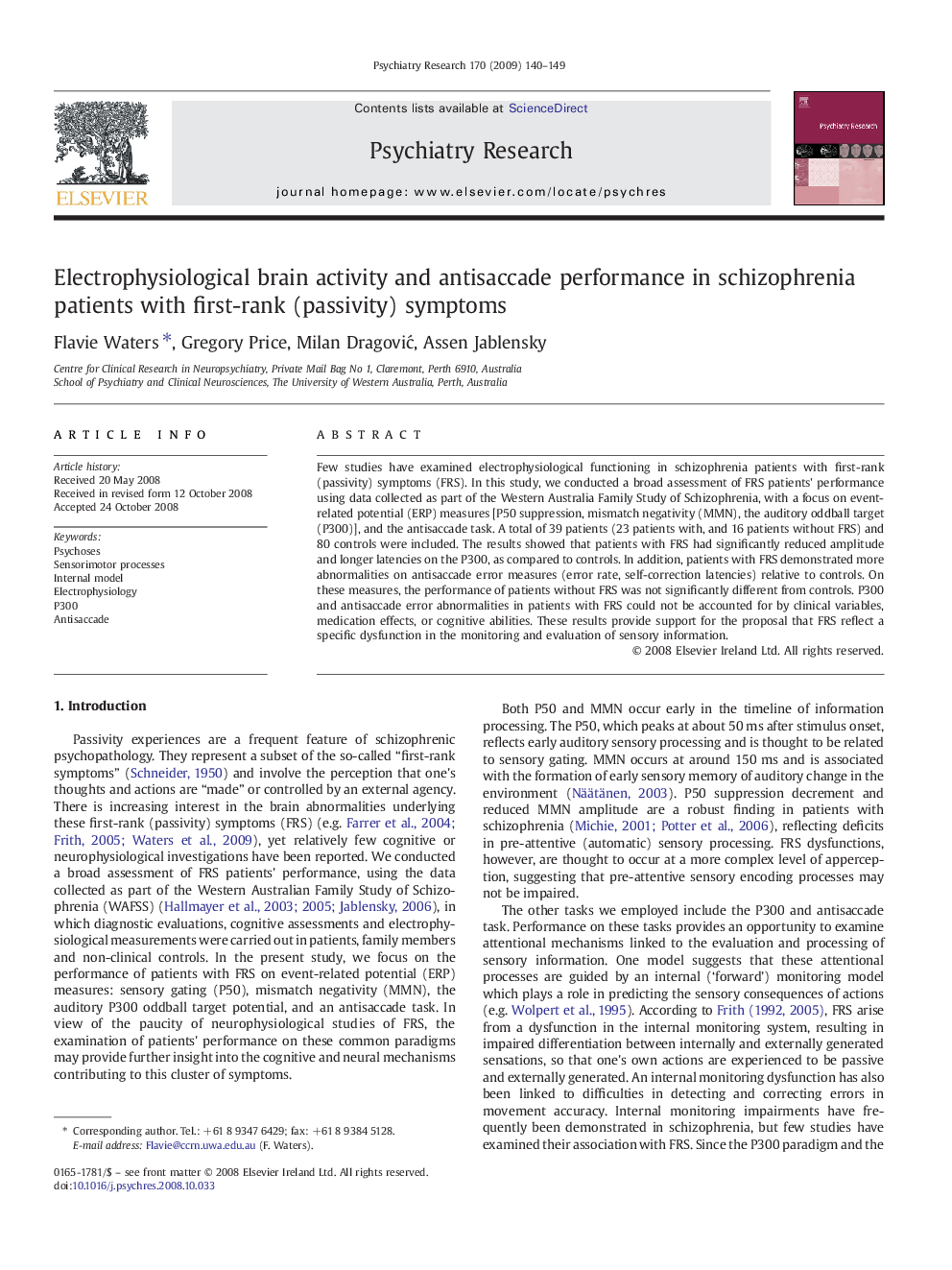| Article ID | Journal | Published Year | Pages | File Type |
|---|---|---|---|---|
| 332782 | Psychiatry Research | 2009 | 10 Pages |
Few studies have examined electrophysiological functioning in schizophrenia patients with first-rank (passivity) symptoms (FRS). In this study, we conducted a broad assessment of FRS patients' performance using data collected as part of the Western Australia Family Study of Schizophrenia, with a focus on event-related potential (ERP) measures [P50 suppression, mismatch negativity (MMN), the auditory oddball target (P300)], and the antisaccade task. A total of 39 patients (23 patients with, and 16 patients without FRS) and 80 controls were included. The results showed that patients with FRS had significantly reduced amplitude and longer latencies on the P300, as compared to controls. In addition, patients with FRS demonstrated more abnormalities on antisaccade error measures (error rate, self-correction latencies) relative to controls. On these measures, the performance of patients without FRS was not significantly different from controls. P300 and antisaccade error abnormalities in patients with FRS could not be accounted for by clinical variables, medication effects, or cognitive abilities. These results provide support for the proposal that FRS reflect a specific dysfunction in the monitoring and evaluation of sensory information.
